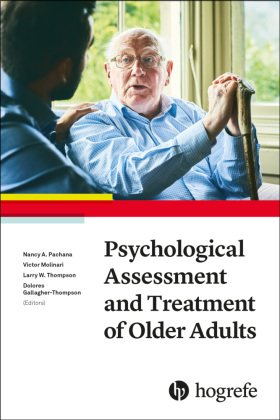Psychological Assessment and Treatment of Older Adults
| Verlag | Hogrefe Publishing |
| Auflage | 2021 |
| Seiten | 266 |
| Format | 17,7 x 1,7 x 25,5 cm |
| Großformatiges Paperback. Klappenbroschur | |
| Gewicht | 569 g |
| Artikeltyp | Englisches Buch |
| EAN | 9780889375710 |
| Bestell-Nr | 88937571EA |
A comprehensive and accessible handbook introducing key topics that psychologists and other practitioners face when working with older adults. Full of case examples and contemporary issues. Readers can test their knowledge with a tool in an appendix.
Learn about the key issues when assessing and treating older adults with mental health problems:Expert guidance through the key topicsHighlights the best assessment and treatment practicesAddresses diversity, ethical, and health system issuesFull of real-life case examplesResources in the appendix to test your knowledgeMore about the bookMental health practitioners are encountering an ever-growing number of older adults and so an up-to-date and comprehensive text addressing the special considerations that arise in the psychological assessment and treatment of this population is vital. This accessible handbook does just that by introducing the key topics that psychologists and other health professionals face when working with older adults. Each area is introduced and then the special considerations for older adults are explored, including specific ethical and healthcare system issues. The use of case examples brings the topics further to life.An important feature of the book is the interweaving of diversity issues (culture, race, sexuality, etc.) within the text to lend an inclusive, contemporary insight into these important practice components. The Pikes Peak Geropsychology Knowledge and Skill Assessment Tool is included in an appendix so readers can test their knowledge, which will be helpful for those aiming for board certification in geropsychology (ABGERO).This an ideal text for mental health professionals transitioning to work with older clients, for those wanting to improve their knowledge for their regular practice, and for trainees or young clinicians just starting out.

